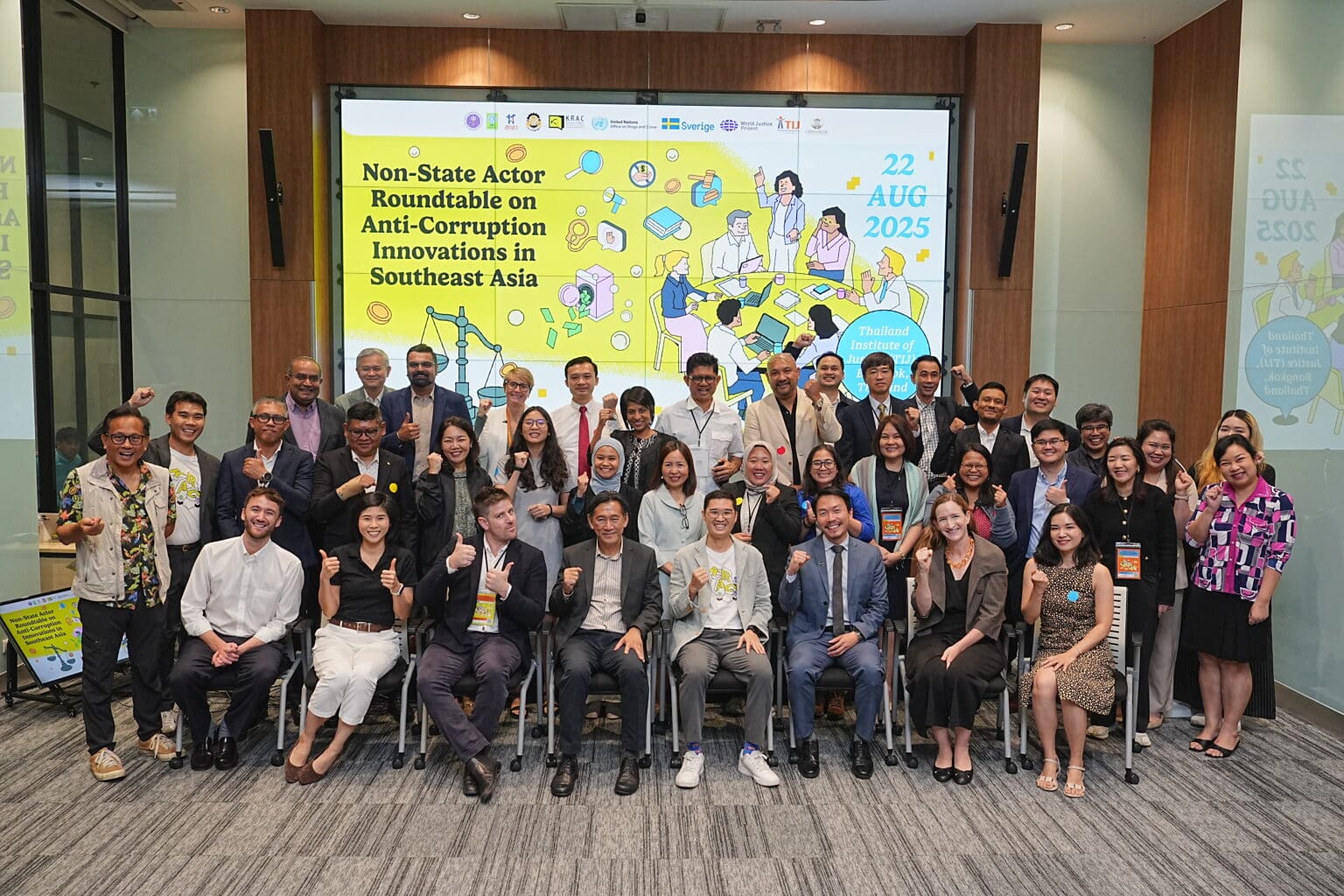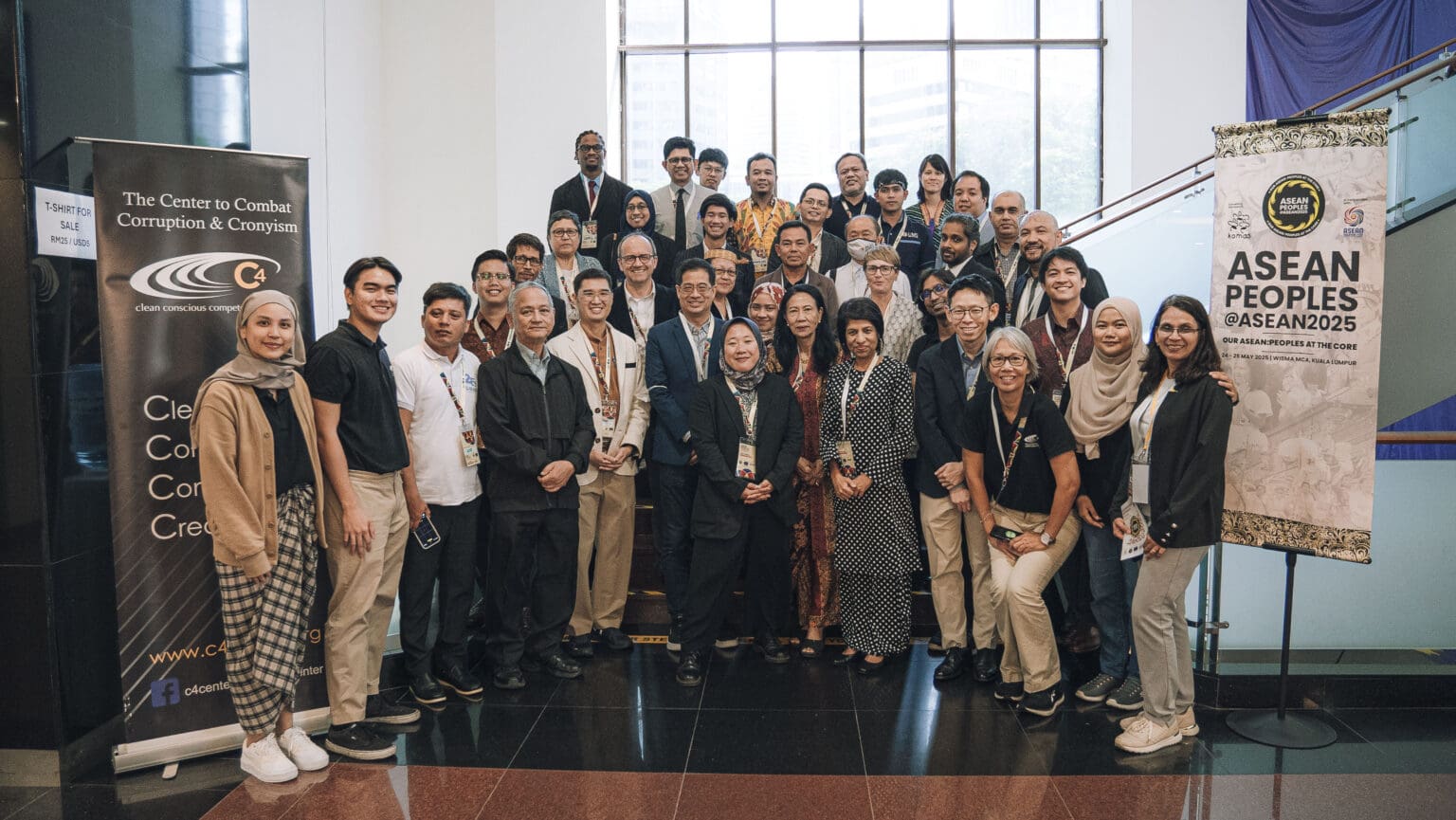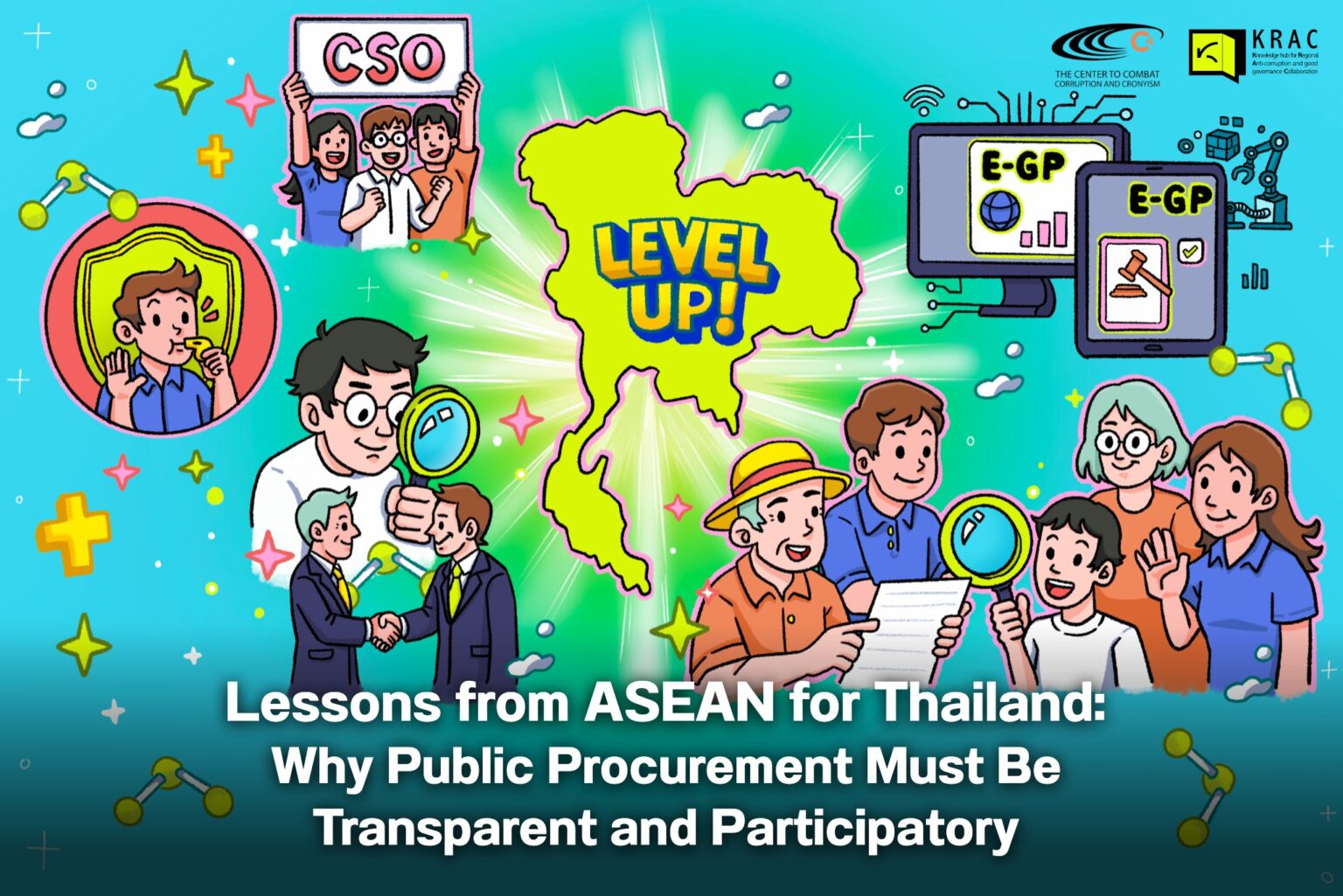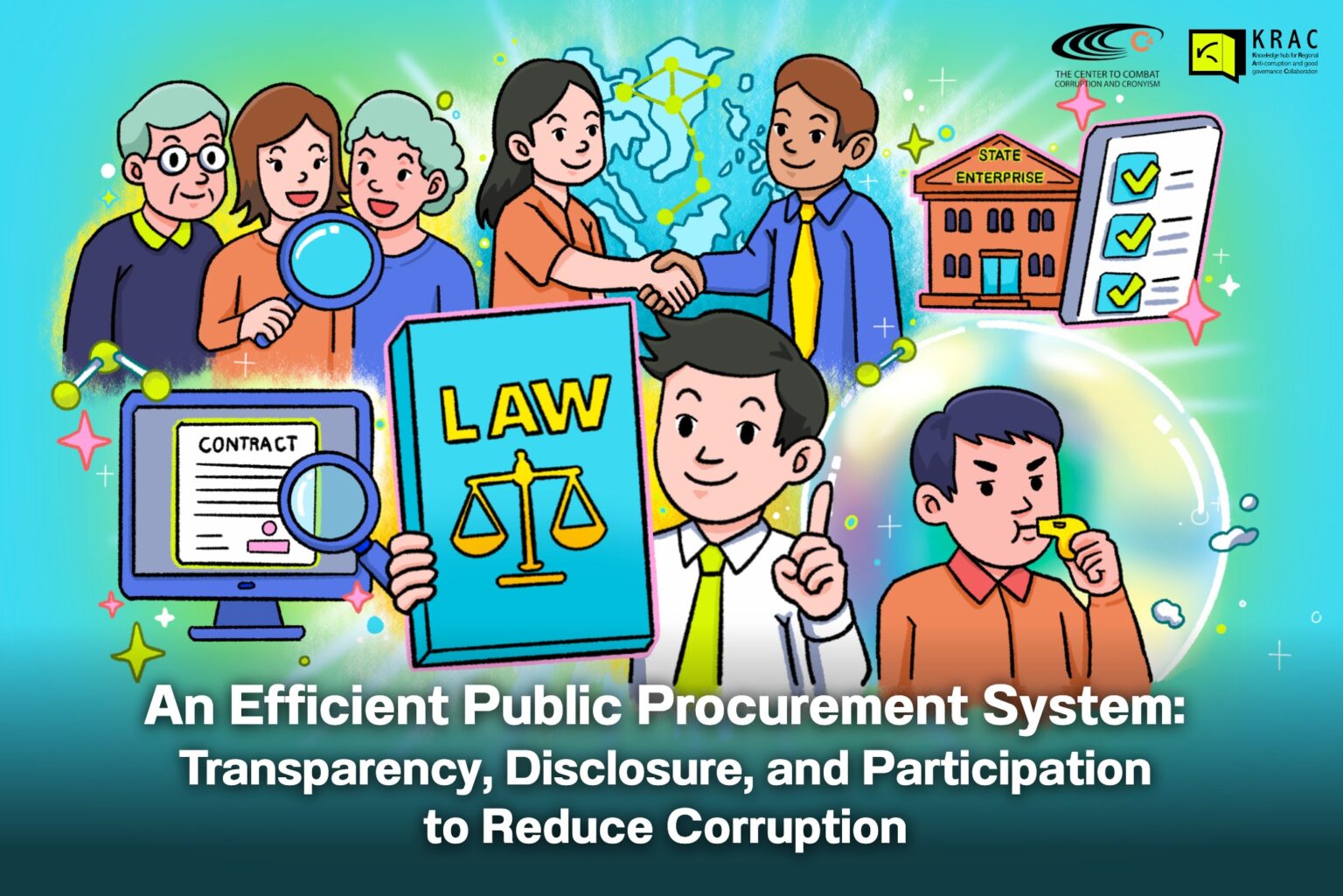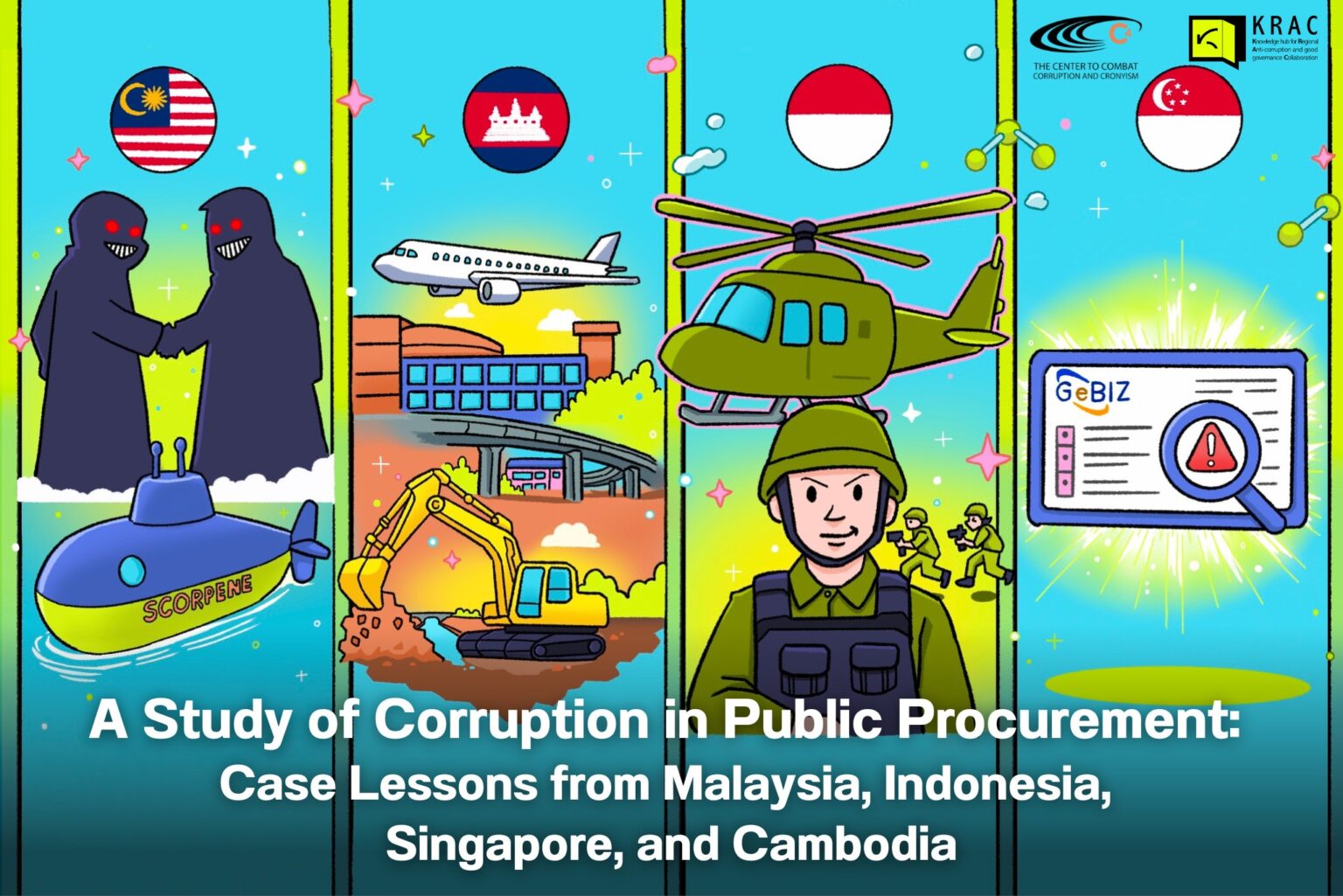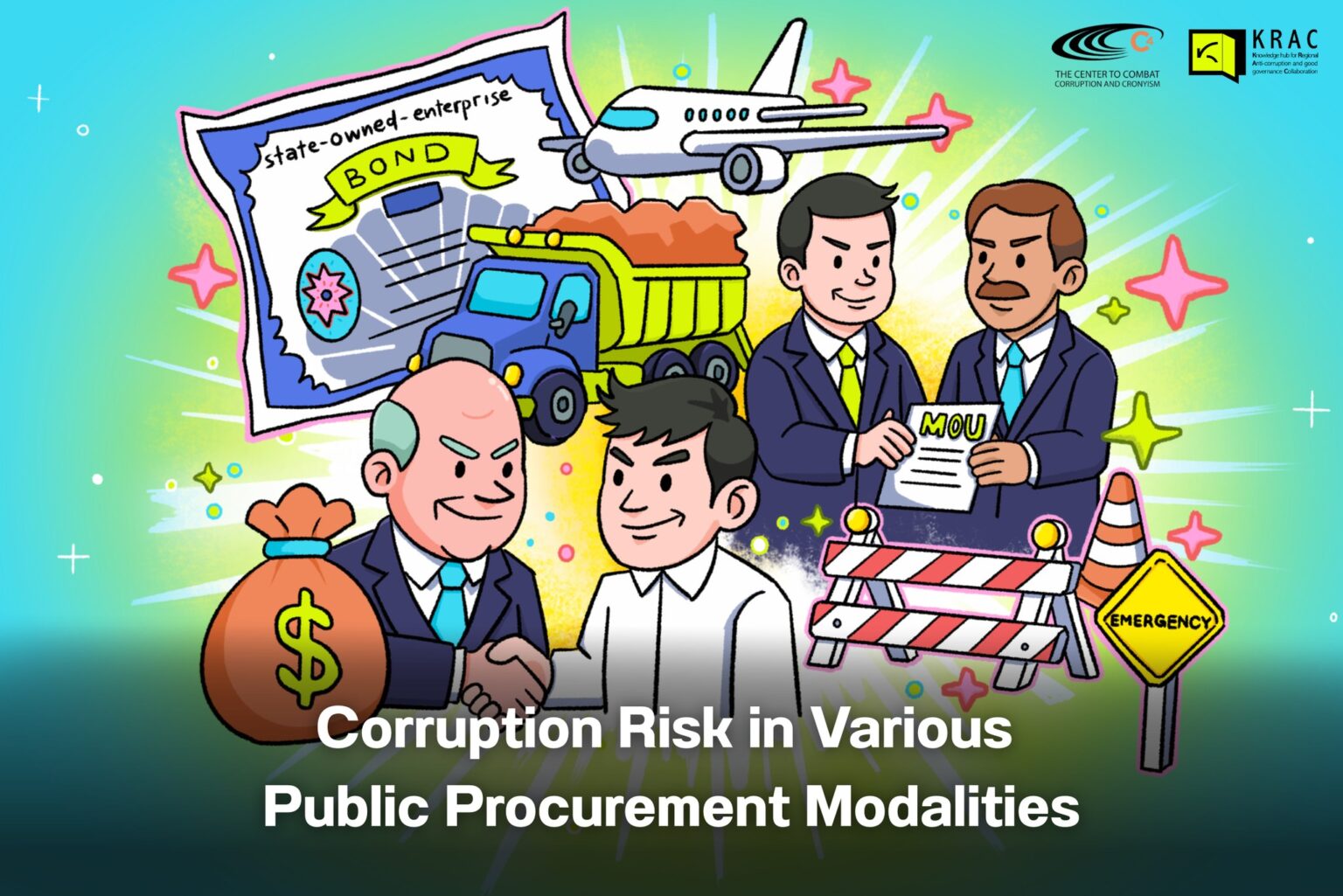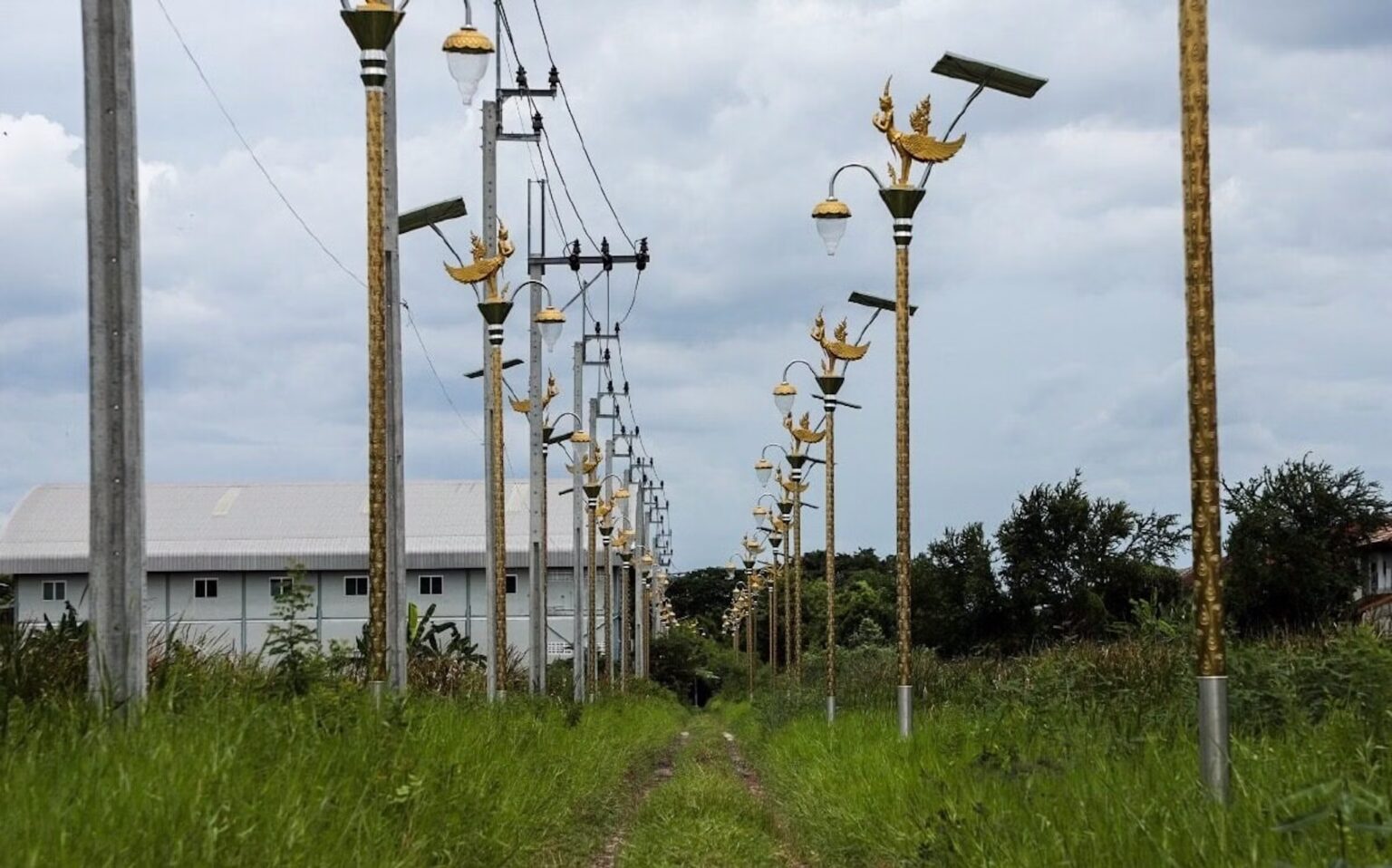
How to solve the problem of corruption in government procurement projects with sustainability? Today, we have answers from the “Southeast Asian Anti-Corruption Network (SEA-ACN) Roundtable Discussion.”
This event was organized by Knowledge Hub for Regional Anti-corruption and Good Governance Collaboration (KRAC), Faculty of Economics, Chulalongkorn University supported by the National Research Council of Thailand (NRCT) in collaboration with the United Nations Office on Drugs and Crime (UNODC), The Chandler Institute of Good Governance, and the U.S. Embassy in Thailand.
During the Roundtable Discussion on “Public Procurement,” representatives from eight organizations participated, including:
1. Core Group Transparency/ PWYP-Timor-Leste (CGT/PWYP-TL)
2. Government Watch (G-Watch)
3. Indonesia Corruption Watch
4. Open Contracting Partnership
5. Transparency International Cambodia
6. People’s Empowerment Foundation
7. Center to Combat Corruption & Cronyism (C4 Center)
8. Anti-Corruption Organization of Thailand (ACT)
The participants highlighted issues related to “public infrastructure procurement processes and financial audits of the public sector, based on case studies from Southeast Asian countries.” The lack of sufficient information for auditing and tracking many projects has led to potential corruption issues.
The participants agreed to study the public procurement models and processes of various countries in Southeast Asia to find commonalities and differences. This comparative analysis aims to create a framework for assessing corruption risks that can arise at different stages of the procurement process.
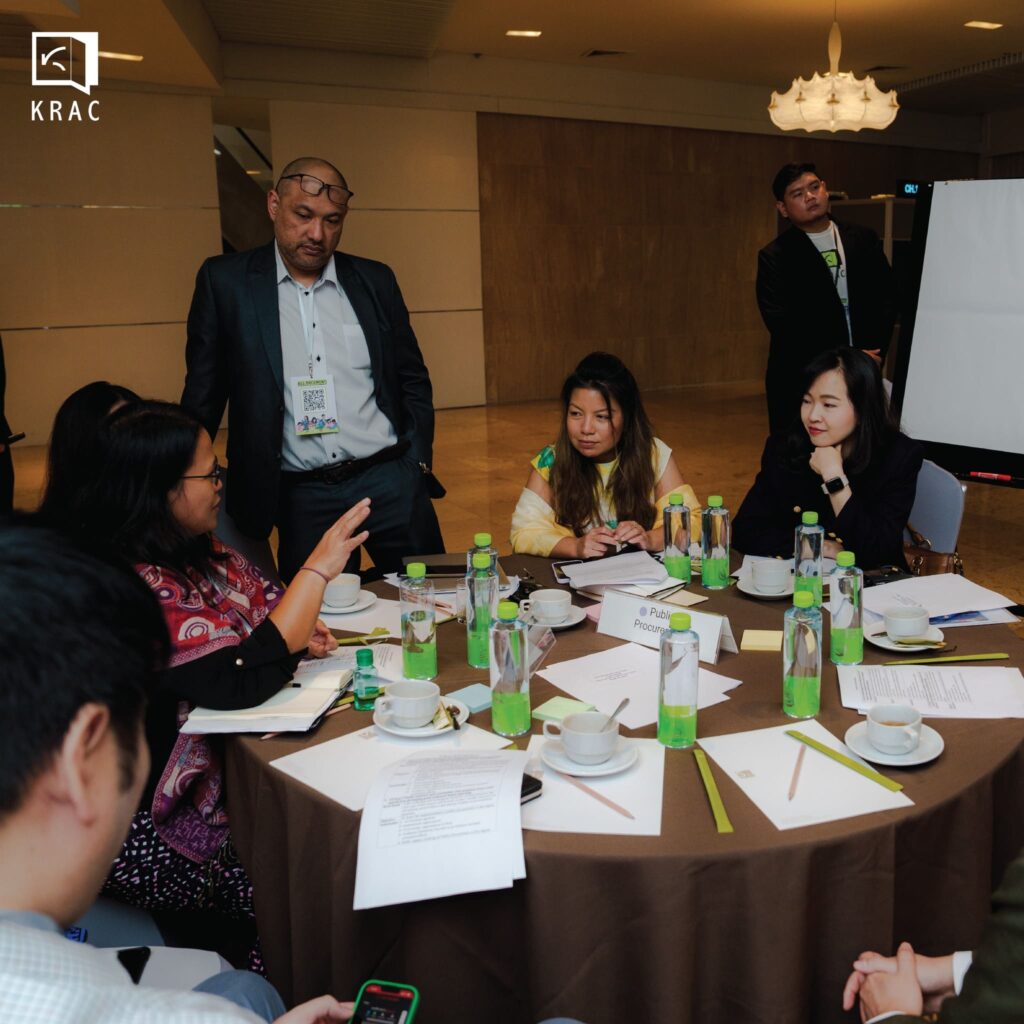
To ensure continuity, the participants proposed holding workshops among network members to develop concrete action plans for improving procurement planning.
This study requires cooperation from the governments of various countries in the region to provide information. It also needs feedback on public procurement projects from civil society and the public.
Therefore, after developing a transparent procurement action plan, a joint meeting with stakeholders, including government agencies and non-governmental organizations (NGOs), should be held to present the plan and gather feedback for further development and implementation.
This is one of the topics from this roundtable discussion. What will the next topic be? Follow us on Facebook KRAC Corruption to join the conversation!
YEAR
2024
AUTHOR
Knowledge hub for Regional Anti-corruption and good governance Collaboration (KRAC)
ORGANIZATION
Related Content
Thematic Reporting for CSO Forum : Enhancing Inclusivity and Sustainability @ASEAN PEOPLES 2025
The objective of the session is to gather case studies and experiences on the dangers of whistleblowing when speaking out against environmental crimes, accompanying SLAPP suits and recommend points for better protection.
SEA-ACN Workshop | Strengthening Cross-Border Collaboration to Reform Government Procurement and Combat Corruption in Southeast Asia
Discover how a regional workshop led by KRAC C4 Center and SEA-ACN brought together experts from multiple countries to address gaps in public procurement reforms, share best practices, and strengthen efforts against corruption across Southeast Asia.
SEA-ACN Roundtable | Transform Your Organization with the Power of Corporate Governance
Unlock the power of corporate governance to transform and strengthen your organization. Discover key insights from the SEA-ACN Roundtable, supported by KRAC, UNODC, and regional partners.


